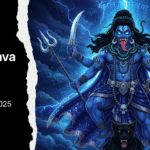The core spiritual significance of Diwali is the celebration of the victory of light over darkness, good over evil, and knowledge over ignorance. More than just a festival of lights, Diwali represents an inner spiritual awakening and the realization of the divine light within each individual. This year we celebrate Diwali on Monday, 20th October.
Spiritual Details
Triumph of Dharma: Diwali commemorates Lord Rama’s return to Ayodhya after defeating Ravana (Ramayana), Lord Krishna’s victory over Narakasura, and, in other traditions, the emergence of Goddess Lakshmi from the cosmic ocean. Each story conveys that righteousness, virtue, and inner light always triumph over ego, desire, and ignorance.
Inner Illumination: Lighting lamps (diyas) during Diwali symbolizes the dispelling of spiritual darkness and the illumination of the soul. According to the scriptures, light represents divine wisdom (jnana), while darkness stands for spiritual ignorance (avidya).
Universal Message: Diwali’s message is that every individual carries both light and darkness within, and spiritual growth is about awakening the inner Ram (virtue) and subduing the inner Ravana (ego), as explained in the Bhagavad Gita (5.16): “But for those whose ignorance is destroyed by divine knowledge, the Supreme Entity is revealed, just as the sun illumines everything when it rises.”
Acts of Kindness: Charity, gratitude, community service, and forgiveness are encouraged, reflecting the festival’s deeper purpose of not only self-purification but also spreading light and positivity to others.
Scriptural Roots
- Lord Rama’s Return to Ayodhya: The most widely celebrated legend comes from the Ramayana. After 14 years of exile and the defeat of Ravana, Lord Rama returned to Ayodhya with Sita and Lakshmana. The people illuminated the city with oil lamps (diyas) to welcome them, symbolizing the dispelling of darkness.
- Defeat of Narakasura by Krishna: Another popular story is from South India, where Lord Krishna defeats the demon king Narakasura and frees thousands of imprisoned women. People celebrated their newfound freedom with lights and joy.
- Emergence of Goddess Lakshmi: Diwali also marks the day when Goddess Lakshmi emerged from the ocean during the Samudra Manthan (churning of the cosmic ocean), bringing prosperity and abundance to the world. Hence, Lakshmi Puja is central to Diwali traditions in many regions.
- Return of the Pandavas: According to the Mahabharata, the Pandavas’ return from 13 years of exile on Kartik Amavasya was celebrated with lights and festivities by their subjects.
- Coronation of King Vikramaditya: Another legend relates to the crowning of King Vikramaditya, celebrated with lamps and joy in his honor.
- Dhanteras and Yamadeepdaan: The festival begins with Dhanteras, commemorating the emergence of Dhanvantari from the ocean and the tale of a young wife saving her husband from death by adorning their home with lamps, a tradition that became known as Yamadeepdaan.
These stories reinforce Diwali’s deeper meaning: the lighting of lamps represents inner enlightenment, victory of virtue over vice, and the spread of prosperity and joy. Diwali’s traditions unite communities in devotion, thanksgiving, and celebration of the divine in everyday life.
Main Rituals and Traditions
- House Cleaning and Decoration: Homes are thoroughly cleaned, renovated, and adorned with rangoli patterns and fresh flowers, symbolizing the invitation of prosperity and Goddess Lakshmi into the household.
- Lighting Diyas and Lamps: Rows of oil lamps (diyas) are placed around homes, in courtyards, and public spaces. This ritual dispels darkness and welcomes spiritual light.
- Lakshmi and Ganesh Puja: On the third day—main Diwali—families perform elaborate worship of Goddess Lakshmi (prosperity) and Lord Ganesha (remover of obstacles), offering sweets, coins, flowers, incense, and prayers for abundance.
- Rangoli: Colorful art designs made from rice, flower petals, or colored sand are created at entrances to attract positive energy and welcome deities.
- Sharing Sweets and Gifts: Families share homemade sweets (like laddoo and barfi), snacks, and presents—strengthening social bonds and expressing goodwill.
- Fireworks and Festivities: The bursting of crackers and fireworks is a popular tradition, symbolizing the jubilant defeat of evil and the celebration of triumph.
- Family Gatherings: Diwali brings together friends and relatives for feasting, prayers, and exchanges of love and blessings.
| Day | Rituals & Traditions |
|---|---|
| Dhanteras | Buying gold/silver items, utensils, and cleaning homes; worshiping Lakshmi |
| Naraka Chaturdashi | Lighting 14 lamps to ward off negativity; prayer for ancestors |
| Diwali (Main Day) | Lakshmi-Ganesh puja, lighting diyas, feasting, fireworks |
| Govardhan Puja | Worship of Krishna and offering Annakoot (mountain of food) |
| Bhai Dooj | Celebrating brother-sister bonds, prayers for siblings’ wellbeing |
Astrological Remedies and Practices
- Buying Precious Metals and Utensils: According to Vedic astrology, purchasing gold, silver, or tools on Dhanteras (the first day of Diwali) invites prosperity and strengthens planetary benefic effects.
- Worship of Planetary Deities: Some perform remedies to appease malefic planets such as Saturn and Rahu by lighting sesame oil lamps or offering black sesame seeds.
- Cleaning and New Beginnings: Cleaning homes and workplaces clears accumulated negative energies and aligns the environment with auspicious planetary transits.
- Starting New Ventures: Diwali, especially the main day and Dhanteras, is considered highly auspicious for inaugurating new businesses, property purchases, or investments.
- Yantra Worship: Placing and worshipping mystical diagrams (Yantras) of Goddess Lakshmi or Lord Ganesha enhances financial stability and protection.
- Vedic Rituals: Some families recite Vedic hymns like the Ganapati Atharvashirsa and Lakshmi Stotra to invoke divine blessings.
Celebrating Diwali spiritually means looking beyond the outward festivities, embracing the inner journey from darkness to light, and recognizing the divine spark within every soul. It is an opportunity for self-transformation, realizing our highest potential, and spreading joy, peace, and enlightenment in the world.
Happy Diwali to you & your family!!



